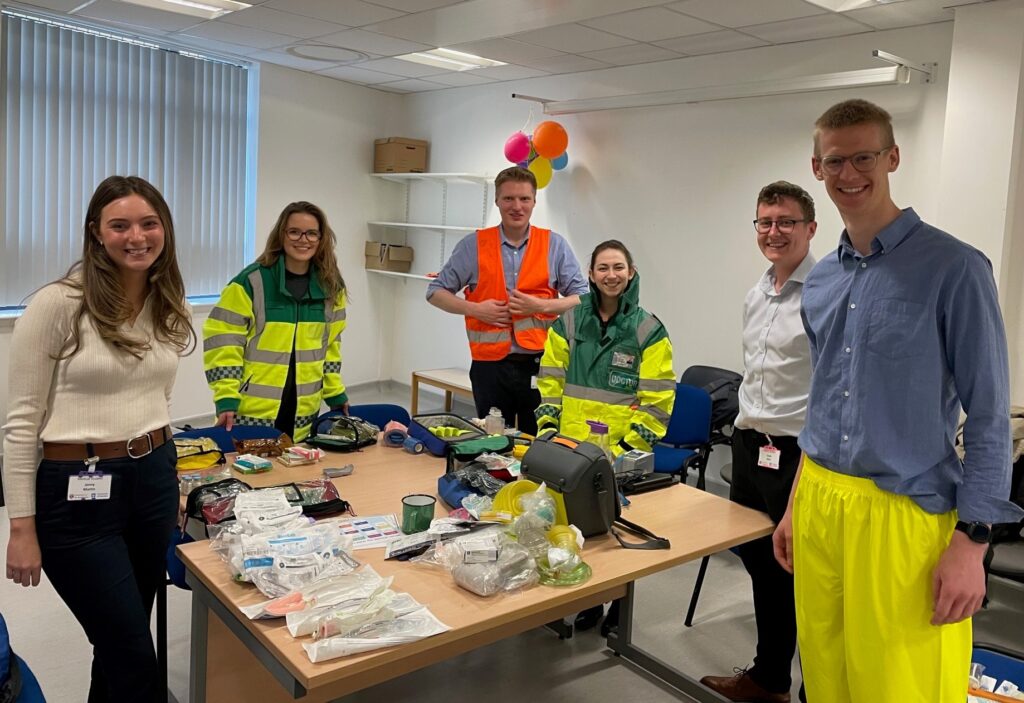
The end of the academic year is approaching! For second year ScotGEM students this means the completion of lectures, clinical skills and days with our Generalist Clinical Mentors (GCMs) in their GP practices. The final 6 weeks of second year are focussed on immediate care, in the Patient Journey Urgent Care (PJUC) block. This block involved us getting to grips with emergency scenarios, including cardiac arrests and trauma, and learning the various algorithms that their management entails. We were introduced to the less “sociable” hours that medicine can occupy, with placements in Out-of-Hours and the Emergency Department (ED). Our last weekend was spent training with the British Association for Immediate Care (BASICS) Scotland, a charity who provide specialist training for doctors, nurses and paramedics working in a pre-hospital setting. This sort of training is usually only available after being qualified for several years, but they have created a weekend course specifically for ScotGEM students.
For this block I was based in Fife with Dr Nick Heath as my GCM, a new addition to the ScotGEM teaching staff. Not only does he have a lot of experience as a GP, but also in the ED and High Dependence Units (HDU) and he is a trained BASICS responder. We were all keen to learn as much as possible! This led to us being thrown many scenarios to handle during the teaching weeks…
During the first week we were given access to the bag Nick has as a BASICS responder, along with the task of organising the kit. These bags are known as ‘Sandpiper Bags’ as they are provided by the Sandpiper Trust, a charity that equips doctors, nurses and paramedics in rural areas with essential medical equipment. I felt completely clueless and was vocal in my fear of the contents of the Sandpiper bag and emergency medicine as a whole. Going through each piece of kit and discussing why and when we would use it helped ease my fears and I left feeling like there was potential for things to get less scary. Our organisation task ended in a dressing up session – at least we looked the part!
Now equipped with our kit, over the following 5 weeks we worked our way through the A-E assessment. This is used to systematically assess and treat acutely unwell patients. We learned innumerable skills, including traction splinting – my leg was nicely secured and straightened out!
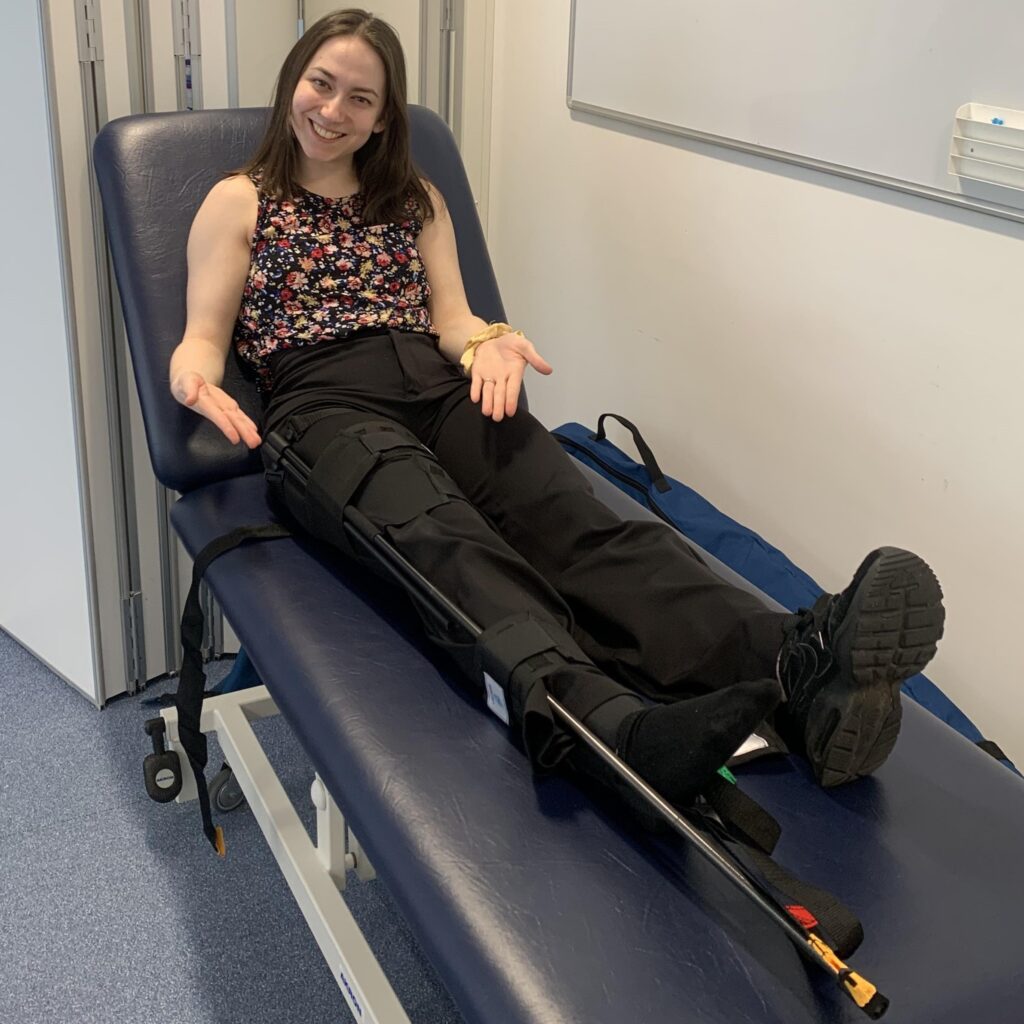
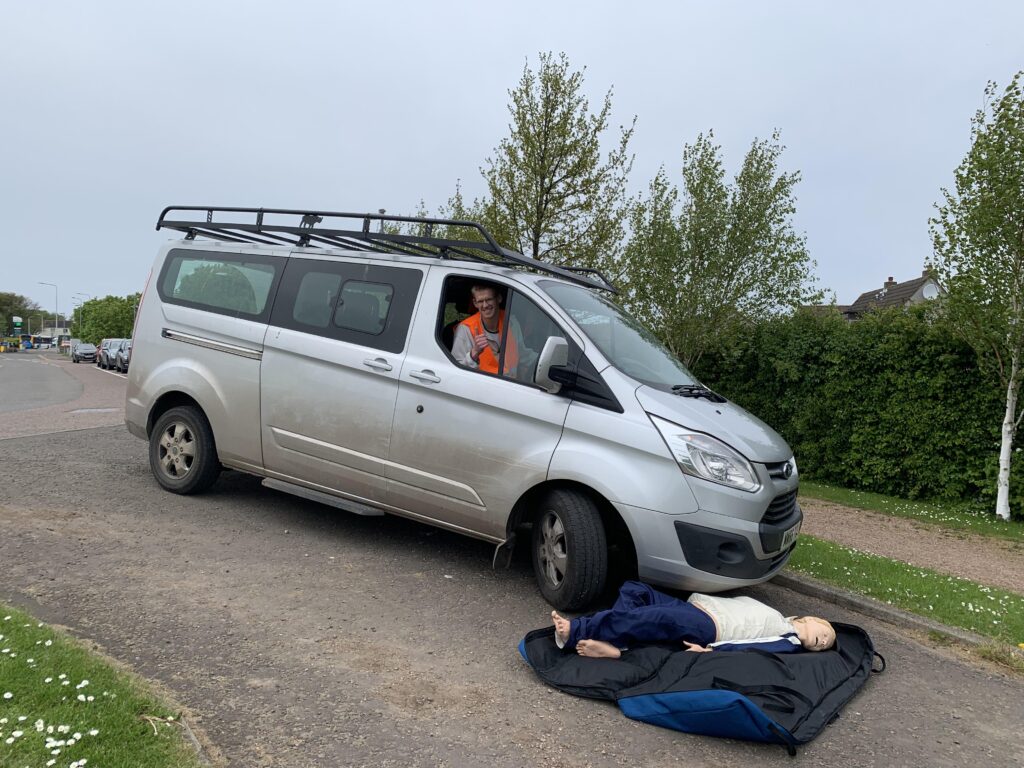
Each week Nick gave us scenarios to run through. We took turns as responders, patients, passers-by and even perpetrators – as evidenced by Simon acting as a dangerous driver who had ran over the poor Resus Annie mannequin. (Please note, no people or mannequins were harmed in any of our scenarios!)





I can honestly say that I didn’t expect to absorb so much knowledge in 6 weeks. By the last week I found that my brain was subconsciously going through the steps, and I was reaching for equipment or treatments automatically. I no longer felt scared of the kit, but prepared to handle whatever came my way. I discovered that I am good at staying calm in heightened situations. As a group, we developed strong communication skills through practicing both leadership and followership. Through our many simulated scenarios, we have shown development and proven ourselves as capable first responders.
This was evidenced on our last day as a group when Nick went live with BASICS Scotland, meaning that he could be called to an emergency at any time by the ambulance service – with us as his assisting team. I think it’s fair to say that we were all equally nervous and excited at the prospect. While waiting for a call, we kept ourselves distracted with a revision quiz and a trip to Jannettas Gelateria in St Andrews for ice cream.
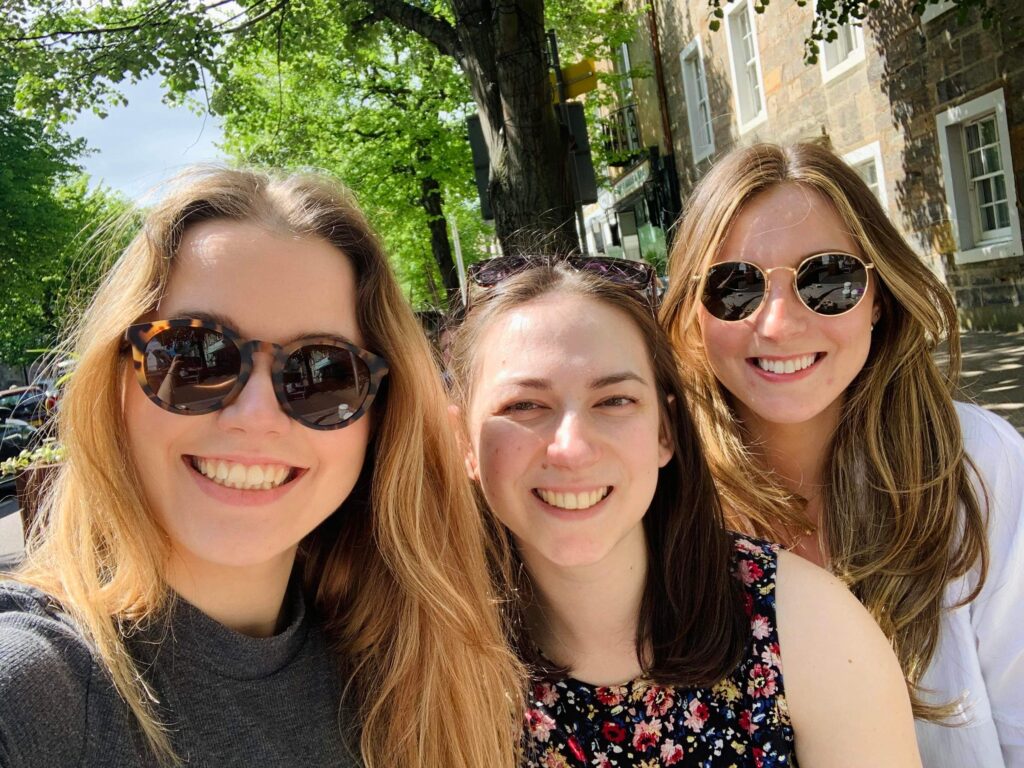
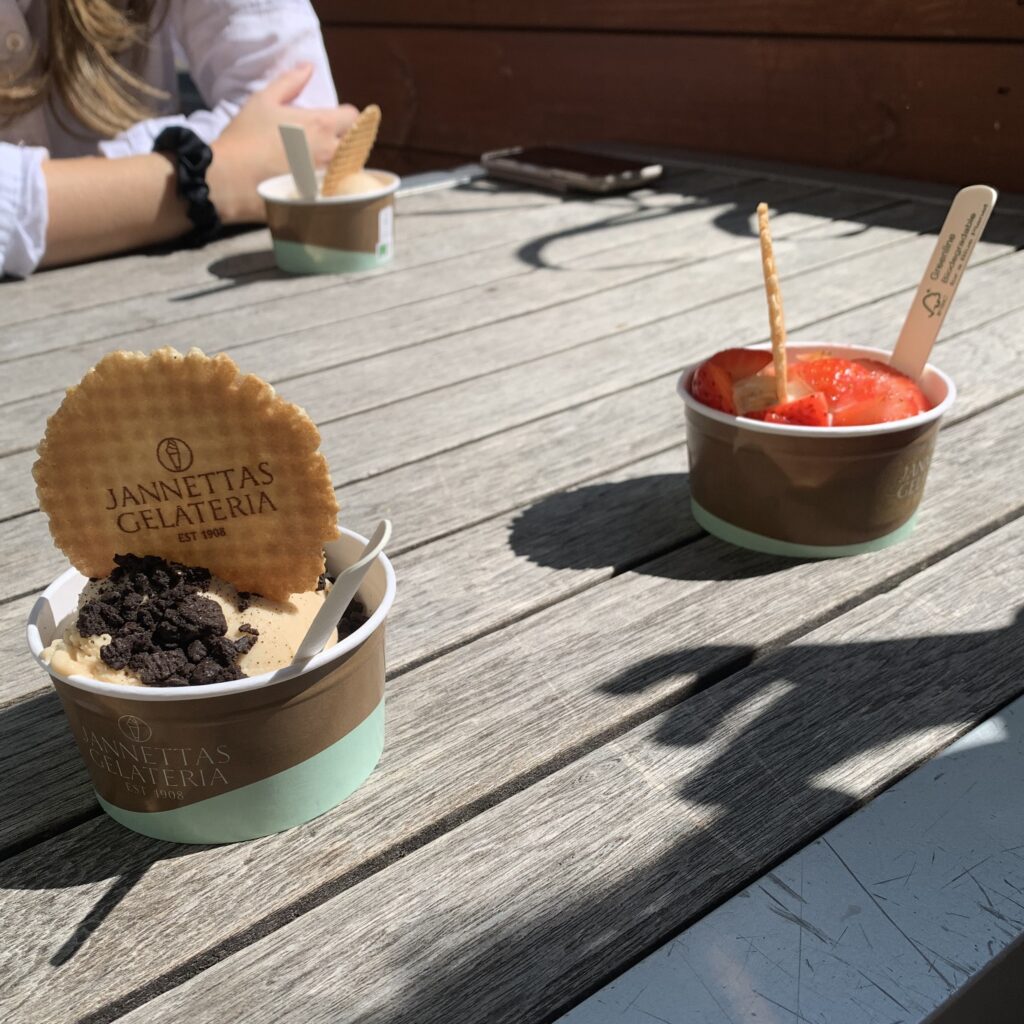
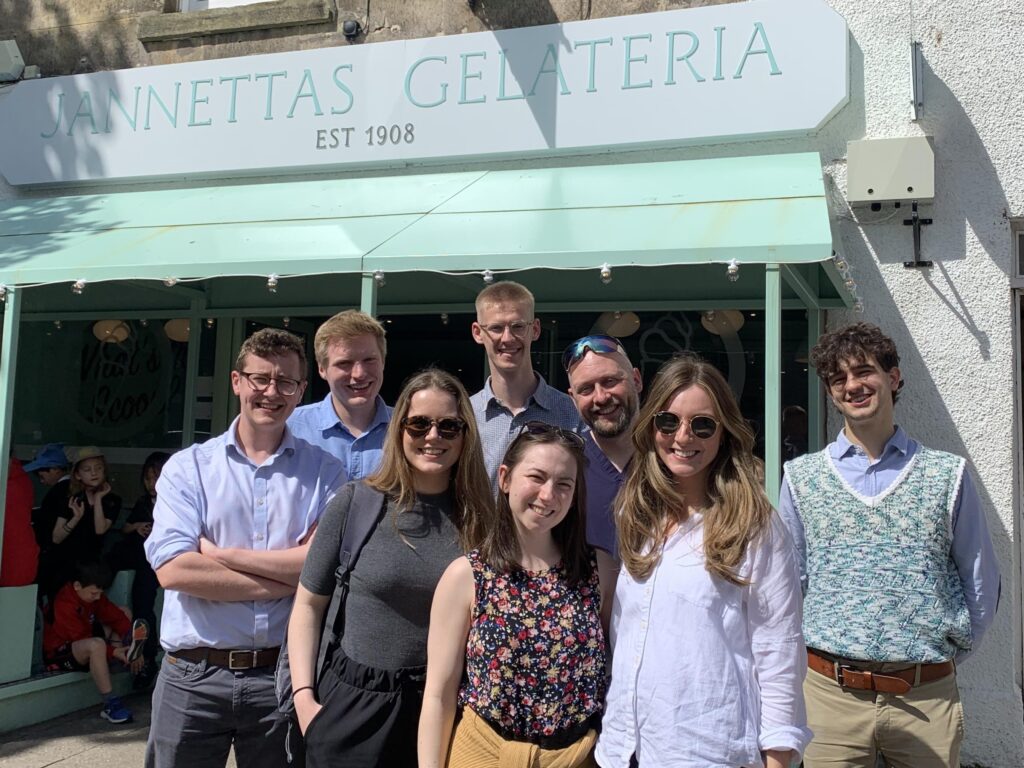
In the end, we didn’t receive a call for BASICS response. While it is obviously a good thing that we weren’t needed in the surrounding area, and we would never wish for an emergency situation, we were a bit disappointed not to put our skills into action as it would have been a great learning experience to utilise our knowledge and skills in a real situation. However, I am sure there will be countless opportunities in our medical careers. I am already linking up this new knowledge with everything else we have learned in the last 2 years and am sure that it will help my clinical practice going forward. I know personally that our urgent care block has certainly given me even more to consider for my future. After exams are over, of course!
Olivia is a current second year ScotGEM student based in Fife.
